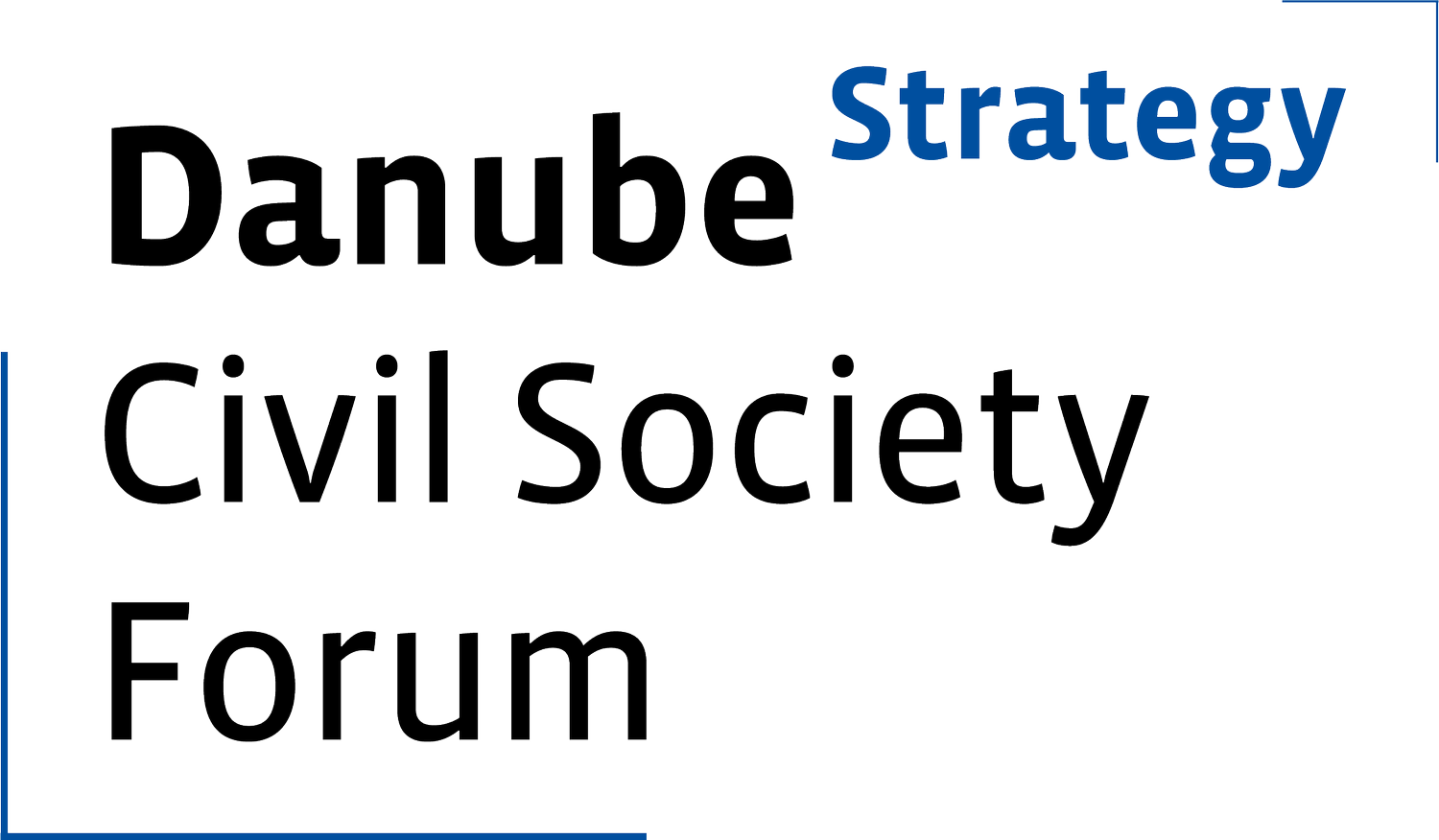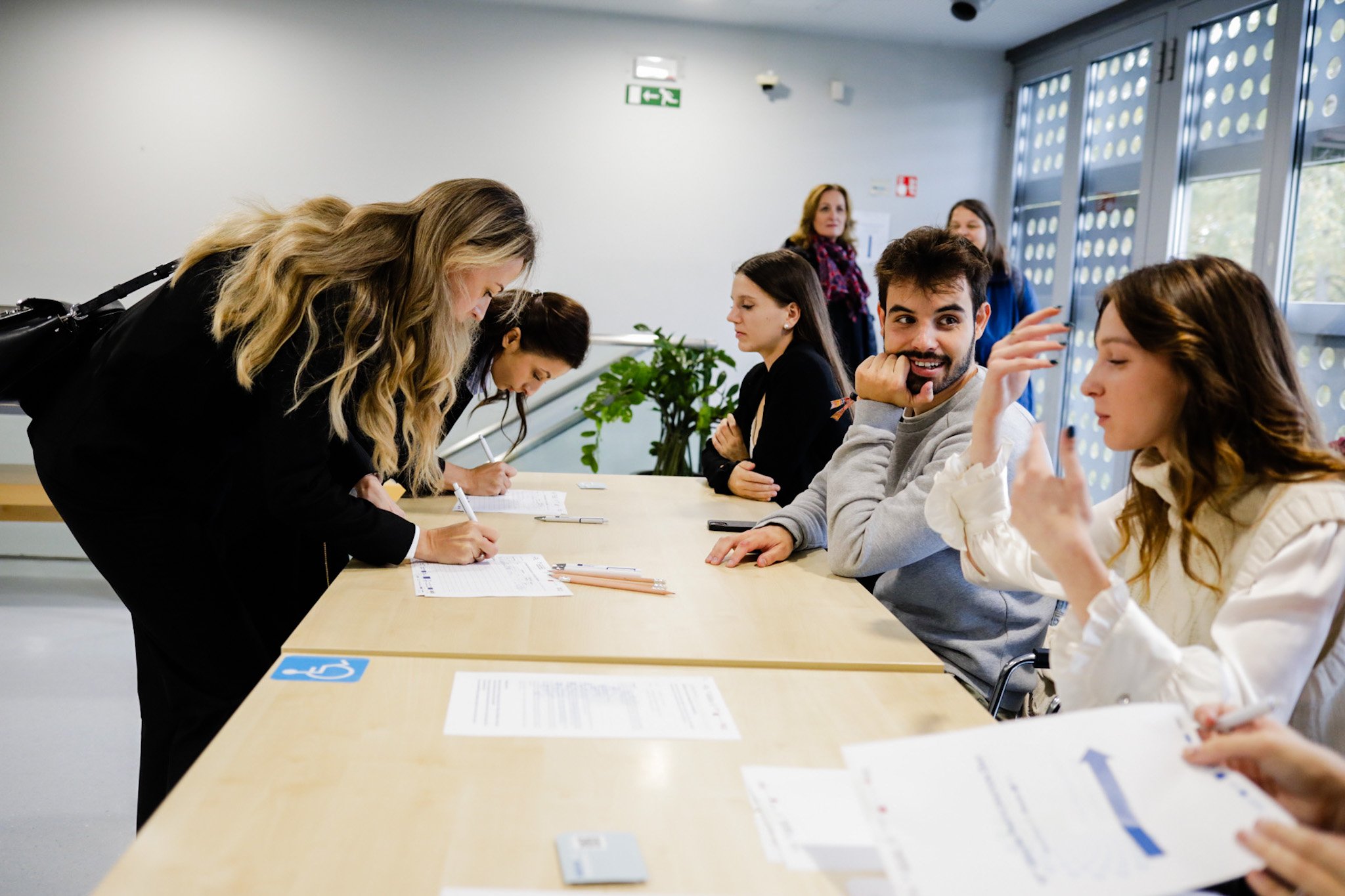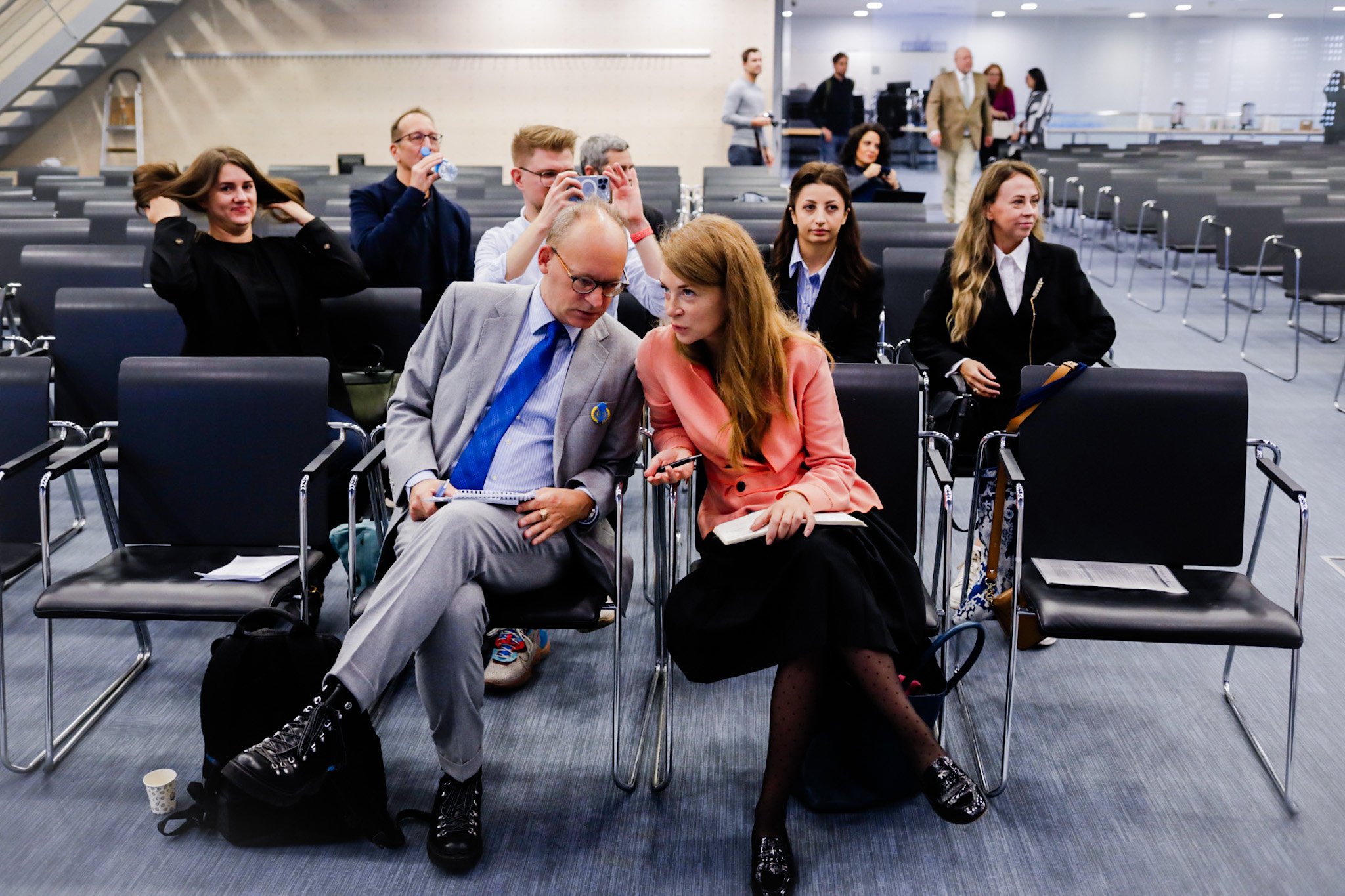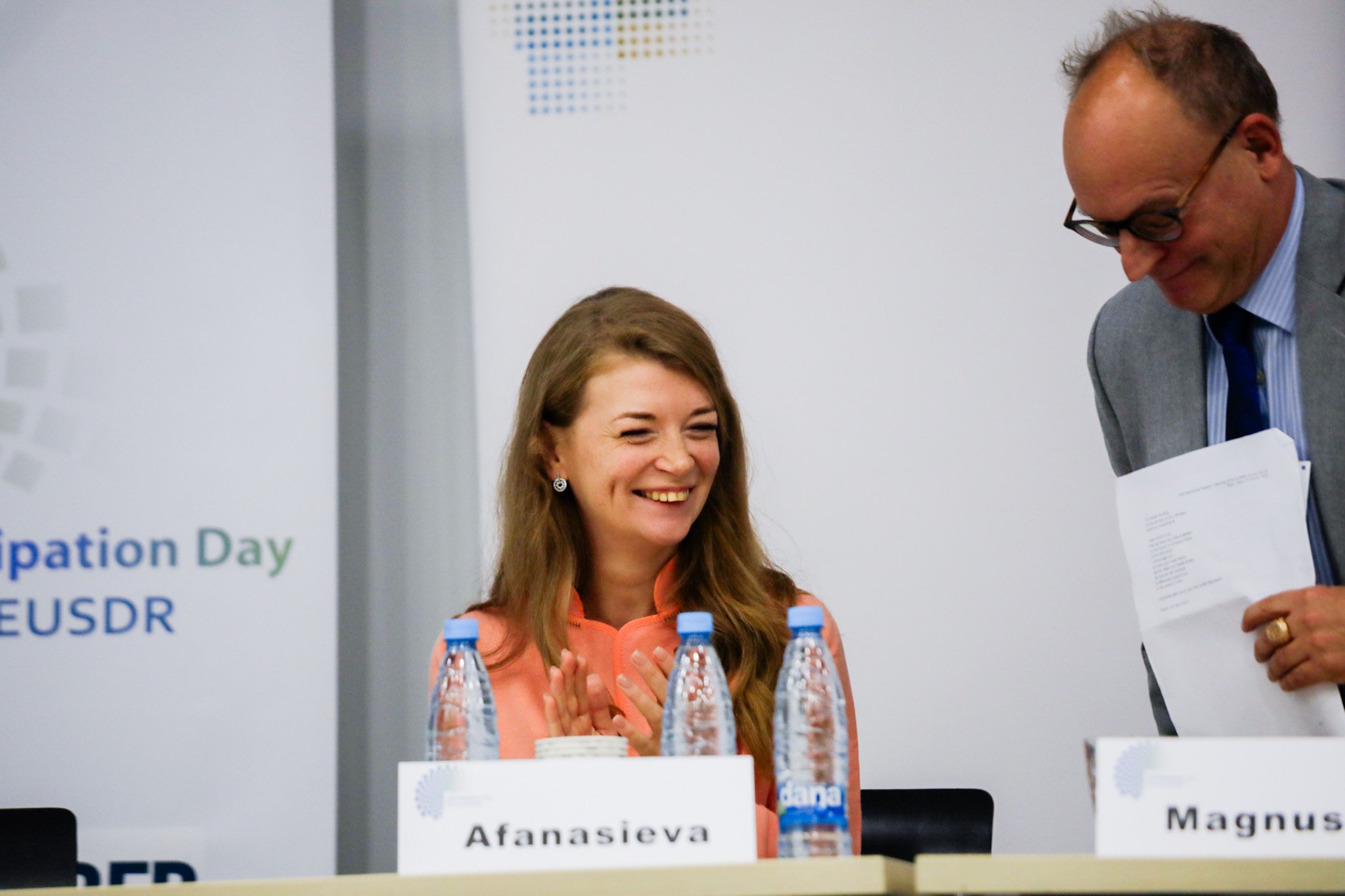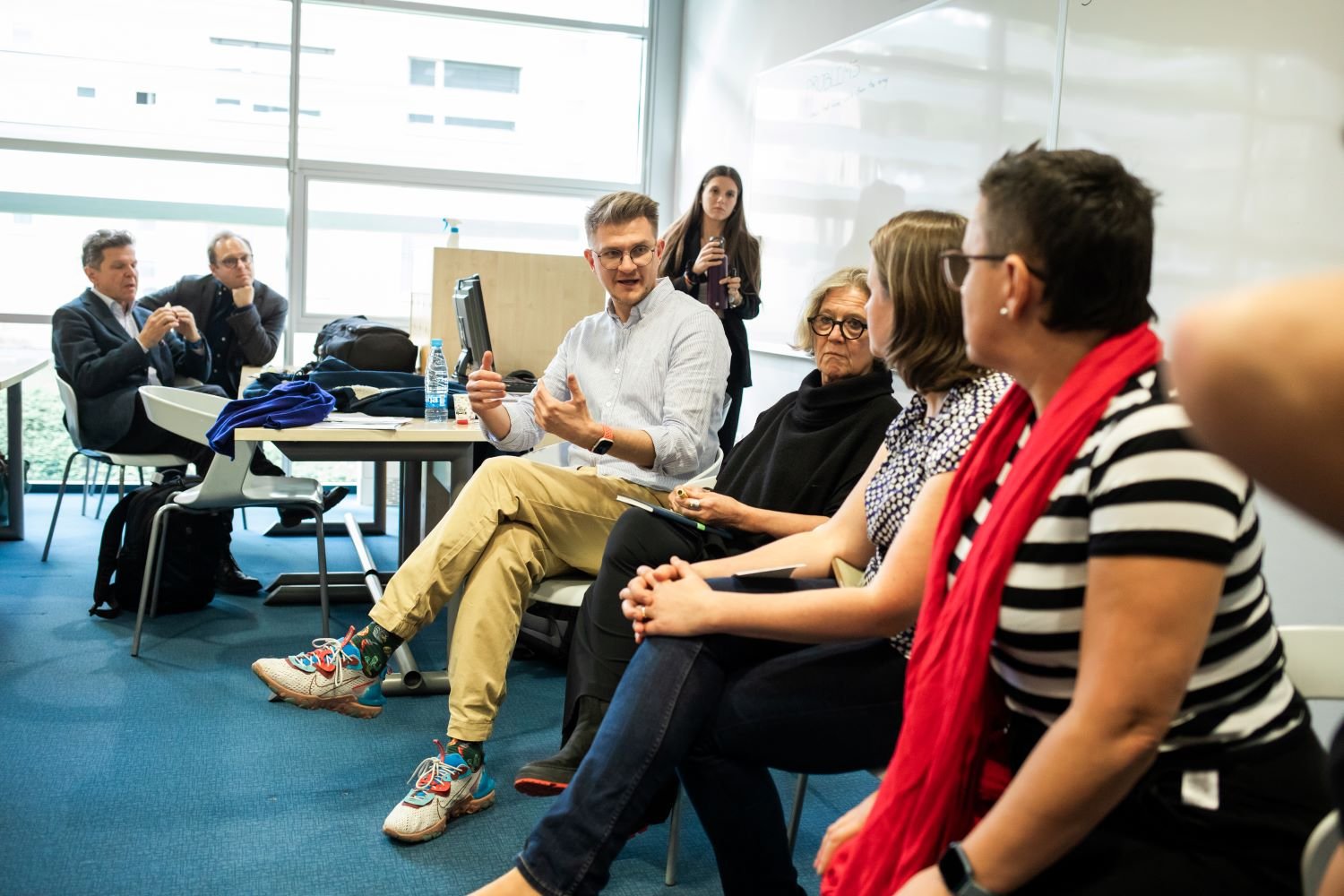Thank you all for joining us at the 10th Danube participation Day - Ukraine’s recovery towards EU membership, on 23 October 2023, in Ljubljana, Slovenia.
This year´s Danube Participation Day was an official side event of the 12th Annual Forum of the EU Strategy for the Danube Region which aimed to answer the question: How can the EU Danube Strategy strengthen civil society & local actors for a sustainable recovery towards EU membership and what can we learn from/for Moldova?
The organizers of the Danube Participation Days, Foster Europe Foundation, Priority Area 10 “Institutional Capacities & Cooperation” of the EUSDR, jointly with the Slovenian EUSDR Presidency 2023, as well as with the upcoming Austrian EUSDR Presidency 2024, decided to address the double transformation from war and on its way to EU membership and recovery of Ukraine at the 10th and 11th Danube Participation Days 2023 and 2024. We regard the war on Ukraine and the transformation and recovery of Ukraine as the biggest challenge for the Danube Strategy so far. This why we would like to dedicate two subsequent Danube Partcipation Days and two years to explore how the EUSDR as a key tool for EU accession for Ukraine can be of support for Ukraine.
The Danube Participation Day, DPD, 2023 brought together actors from the EUSDR, national and regional decision makers, academic, civil society as well as actors from other European institutions like the Council of Europe. In the context of the EUSDR we explored the potentials of the strategy to support Ukraine in implementing the Lugano Principles with a strong focus on the local and regional level, which is the main “playground” for the EUSDR.
Thanks to ALDA´s - European Association for Local Democracy and the Citizens, Equalty, Rights and Values Programme´s fund this year we are able to give financial support for accommodation and travel of some of our participants (preferentially from the Ukraine or Moldova). Please keep in mind that our funds for travel assistance are limited.
PROGRAM
9.00-9.30 Arrival & Registration
9.30-10.00 Welcome & Opening Session
Andreja Jaklič
Vice-dean for Research at the Faculty of Social Sciences, University of Ljubljana
Marko Štucin
State Secretary for European Affairs, International Law and the Protection of Interests at the Ministry of Foreign Affairs of the Republic of SloveniaStefan August Lütgenau
Danube Civil Society Forum/Foster EuropeModeration: Birgit Vogel, International Commission for the Protection of the Danube River (ICPDR)
10.00-11.30 Creating a vision for participatory recovery towards EU membership
A brief introduction into participatory recovery towards Eu membership – The Danube Participation Day 2023 Glossary
A brief and simple definition of strategic frameworks, policies, and terms that will be discussed with regards to Ukraine’s and Moldova’s transition towards EU membership.
A vision for a strong civil society and local actors in a modern and resilient Europe
Interactive exchange with the audience
Setting the scene for a joint vision on participatory recovery towards EU membership
Nadja Afanasieva
UIIP, EUSDR Priority Area 9 “People and Skills”Johan Magnusson
European Commission – DG REGIOClaudia Singer
EU Danube Strategy – Priority Area 10 “Institutional Capacity & Cooperation”/City of ViennaModeration: Birgit Vogel, International Commission for the Protection of the Danube River (ICPDR)
11:30-13:00 Networking & Lunch Break
13.00-14.30 Participatory Recovery in Action | Introductory Panel Discussions
Panel I: Sustainable recovery – Shaping modern European development
László Balatonyi, Ministry of Foreign Affairs and Trade, EUSDR Priority Area 5 “Environmental Risks”
Bohdan Vykhor, WWF Ukraine
Alexander Urbanski, Odessa Regional Council
Moderation: Oleg Dyakov, Rewilding Ukraine
Panel II: Democratic recovery – A vision for boosting Good Governance
Mathilde Perrin, Elections and Participatory Democracy, Council of Europe
Antonella Valmorbida, European Association for Local Democracy – ALDA
Igor Studennikov, Centre for Regional Studies
Moderation: Stefan August Lütgenau, Danube Civil Society Forum/Foster Europe
Panel III: Social Recovery – Strengthening a socially inclusive future
Nadja Afanasieva, UIIP, EUSDR Priority Area 9 “People and Skills”
Niombo Lomba, States Ministry of Baden-Württemberg
Laura Istrate, Social GO Network Romania
Moderation: Katja Vonhoff, Diakonie Baden
14:30-14:45 Change to Workshop Rooms
14:45 – 15:30 Workshops
Objective: Define up to 3 main messages/priorities for the recovery/EU accession process that can/should be implemented in the framework of the EU Danube Strategy/where the EU Danube Strategy can contribute
(Great hall) Workshop I: Sustainable recovery – Shaping modern European development
moderated by Oleg Dyakov, Centre for Regional Studies
(Room 19) Workshop II: Democratic recovery – A vision for boosting Good Governance
moderated by Stefan August Lütgenau, Danube Civil Society Forum/Foster Europe
(Room 20) Workshop III: Social Recovery – Strengthening a socially inclusive future
moderated by Katja Vonhoff, Diakonie Baden
15:30-16:00 Shaping participatory transition with the EU Danube Strategy
Exchanging the main messages/priorities from the workshop
Moderation: Claudia Singer-Smith, EU Danube Strategy – Priority Area 10 “Institutional Capacity & Cooperation”/City of Vienna
16:00-16:30 Closing Session & Passing on the Bell
Outlook into the Austrian Presidency of the EU Danube Strategy
Harald Stranzl, Ambassador, Federal Ministry for European and international Affairs of the Republic of Austria
Passing the Bell
Miro Haček, University of Ljubljana
Stefan Lütgenau, Danube Civil Society Forum/Foster Europe
Closing the 10th Danube Participation Day
Claudia Singer-Smith, EU Danube Strategy – Priority Area 10 “Institutional Capacity & Cooperation”/City of Vienna
We are looking forward to welcoming you (in person) at the 10th Danube Participation Day at the University of Ljubljana, Department of Political Sciences!
With the financial support of the European Union. The contents of the event are the sole responsibility of the organising partners and do not necessarily reflect the views of the European Union.
Glossary - collection of terms
-
The Danube Civil Society Forum serves as a platform for civil society dialogue and collaboration in the Danube basin under the EUSDR, facilitating consultations between civil society and various authorities and organisations to promote an enhance their participation in the regions´s governance.
-
The Directorate-General for Neighbourhood and Enlargement Negotiations (DG NEAR) is in charge of the European Commission's Neighbourhood policy and negotiations regarding the enlargement of the European Union (EU). With regards to EU enlargement, DG NEAR assists countries with a perspective to join the European Union in meeting the critera for EU accession.
-
The Directorate-General for Regional and Urban Policy (DG REGIO) is responsible for the European Commission's policies on regions and cities. Thereby, DG REGIO is in charge of the European Union's Cohesion Policy that aims at strengthening economic, social and territorial cohesion in the European Union.
-
The Eastern Partnership is an initiative to deepen political and economic relations between the European Union and its member states with six Eastern European partner countries – namely, Ukraine, Moldova, Georgia, Armenia, Azerbaijan and Belarus.
-
The EU Accession Process is the path a country follows to become a full member of the European Union. This involves making sure the country matches the European Union’s rules and values before becoming a member.
-
EU Cohesion Policy contributes to strengthening economic, social and territorial cohesion in the European Union. It aims to correct imbalances between countries and regions. It delivers on the Union's political priorities, especially the green and digital transition.
-
The EU Strategy for the Danube Region is one of four macro-regional strategies in the European Union., along with the Baltic Sea, Adriatic Ionian, and Alpine Region strategy.
-
Good Governance is the responsible conduct of public affairs and management of public resources on the basis of values & principles, such as: participation, responsiveness, efficiency and effectiveness, transparency, rule of law, ethical conduct, capacity, innovation, sustainability, human rights, and accountability
-
The Lugano Principles are the guiding principles for Ukraine’s recovery process as endorsed at the Ukraine Recovery Conference in Lugano in 2022. Their purpose is to guide the post-war recovery process on the basis of partnership, reform, transparency, accountability, rule of law, democratic participation, multi-stakeholder engagement, gender equality, inclusion, and sustainability.
-
A Macro-regional Strategy is a framework to support territorial cooperation between regions and countries on common goals by facilitating policy coordination across and within partner countries.
-
"Each country of the EUSDR has a National Coordinator , who maintains an overview of the implementation of the strategy and its targets of
the 12 Priority Areas in their country."
-
Participatory democracy is one core element in active democratic processes, which enables citizens to participate in and influence decision-making processes in their communities between elections. Participatory processes allow citizens not only to voice their opinion, but also to deliberate on policy issues and provide recommendations for solutions. There are different levels of participatory democracy, from information provision, consultation, and dialogue to co-creation and partnerships, and there are numerous methods and models for delivering participation. Participatory processes complement the representative system, using the wisdom of citizens to provide more sustainable and better-quality decisions on highly disputed, challenging or complex issues.
-
In the EU Strategy for the Danube Region, a Priority Area refers to a thematic focus of the strategy that defines specific actions to improve territorial development in the Danube Region. The EU Strategy for the Danube Region has 12 Priority Areas that range from transport to biodiversity and from labour market inclusion to institutional capacity building.
-
Priority Area Coordinator is a role within the governance of the EU Strategy for the Danube Region. A Priority Area Coordinator is a facilitator, who brings together project partners, policy makers, financing instruments, cooperation networks and knowledge in order to support progress in each Priority Area. Each Priority Area has Priority Area Coordinators from at least two countries of the Danube Region that work together with representatives from all Danube Region countries.
